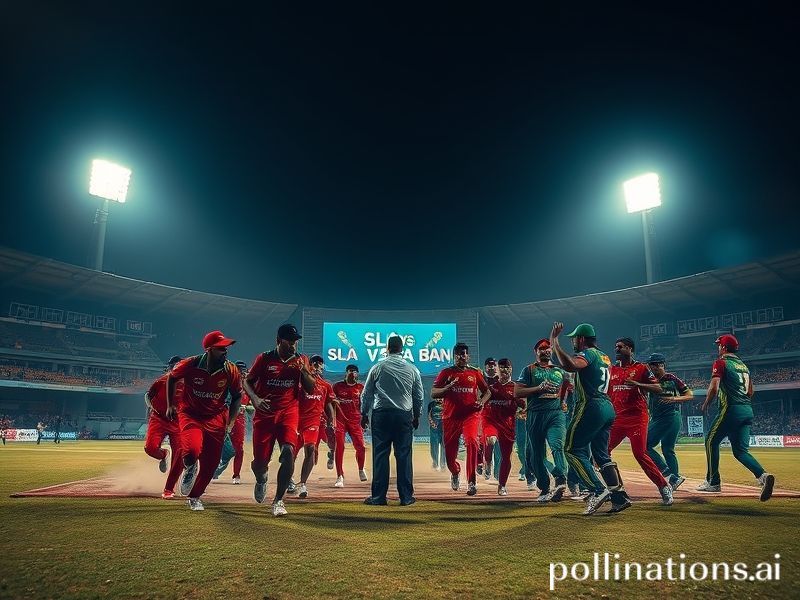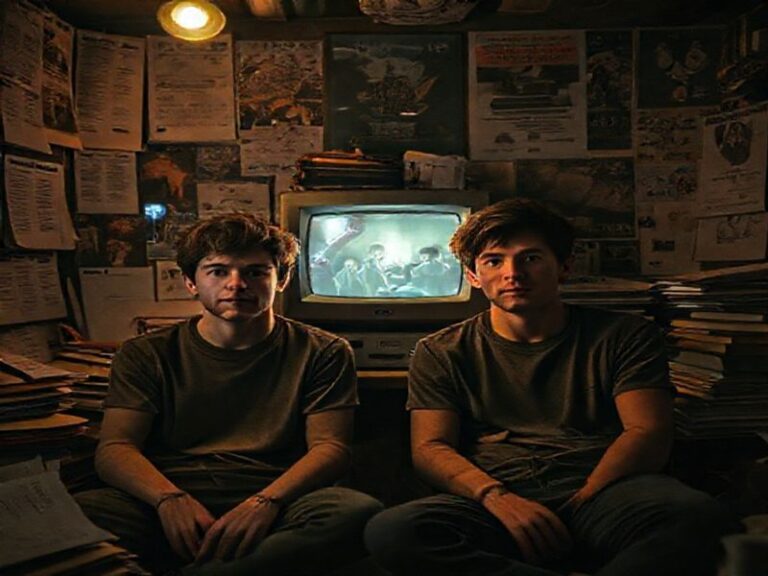SL vs BAN: How a Cricket Series Quietly Became the World’s Most Ironic Balance Sheet
Sri Lanka versus Bangladesh—three syllables that, when uttered in cricketing circles, elicit the same mild enthusiasm you reserve for a lukewarm airline meal. And yet, the latest “SL vs BAN” series, which concluded under the sodium glare of Dhaka’s floodlights, has quietly become a geopolitical canary in the coal mine. While the rest of the planet binge-watches apocalyptic weather reports and wonders which billionaire will buy the moon next, South Asia’s most reliably overlooked neighbors have served up a parable about debt, dignity, and the fine art of losing with style.
Start with the raw numbers: Sri Lanka, population 22 million and debt-to-GDP ratio roughly the same, arrived in Bangladesh nursing an IMF hangover so brutal the team bus now doubles as collateral. Bangladesh, meanwhile, is the world’s fastest-growing economy that nobody at Davos can pronounce correctly, a country that leapfrogged from “basket case” to “basket-making unicorn factory” in a single generation. The cricket pitch, then, was less a field of play than a pop-up balance sheet: one side batting to stay solvent, the other bowling to prove its spreadsheets have souls.
Globally, the series was streamed by a grand total of 1.3 million insomniacs, most of whom had confused the match with a new Netflix docu-drama about currency devaluation. Yet the implications ripple outward like spilled arrack. Consider the broadcast rights: snapped up by a Qatari streaming platform best known for hosting camel-racing reruns. That purchase alone nudged the Gulf’s petro-royals deeper into South Asian soft power, proving once again that sport is just politics with cheerleaders and better catering.
Then there’s the merchandise calculus. Every six struck in this series translated—via algorithmic sorcery—into knockoff jersey sales in the back alleys of Guangzhou. Analysts at a boutique London think tank (motto: “Overthinking the obvious since 2008”) estimate the knock-on effect added 0.0004% to global cotton futures. If that sounds trivial, remember the butterfly effect: today it’s a cuff-linked analyst spilling espresso on a spreadsheet, tomorrow it’s a Bangladeshi factory worker getting overtime so a French teenager can cosplay as Shakib Al Hasan on TikTok.
But wait, the cynic murmurs, what of the actual cricket? Sri Lanka’s batting lineup collapsed with the predictability of a Western democracy promising climate action. Bangladesh chased down a modest total while the stadium Wi-Fi collapsed—an omen, surely, for nations trying to digitize before they stabilize the grid. In the press box, a veteran AFP stringer summed it up: “Two countries trying to middle the ball while the world middle-fingers them.” Dark, yes, but accurate: the post-match presser was delayed because the translator’s PayPal account had been frozen by sanctions no one remembers signing.
Zoom out and the metaphor sharpens. Both countries sit on the frontline of the climate crisis, one eye on rising seas, the other on rising interest rates. Their encounter was a masterclass in performative normalcy: floodlights blazing, anthems echoing, while just beyond the boundary rope, climate refugees queued for drinking water. The ICC calls it “bringing hope to millions”; the rest of us call it cognitive dissonance with a cover drive.
The broader significance? In a world increasingly sliced into spheres of influence—Silicon Valley, Shenzhen, or the House of Saud—SL vs BAN illustrated the third path: the scrappy middle that refuses to be a mere data point in someone else’s supply chain. These nations may owe China the GDP of Belgium, but on a 22-yard strip of curated grass they briefly leveled the ledger. Victory, like solvency, is relative.
So when the final wicket fell and Bangladesh took the series 2-1, fireworks sputtered over the Buriganga River, looking suspiciously like the IMF logo if you squinted. Sri Lanka’s players applauded with the weary grace of men who know tomorrow’s headlines will still scream “DEBT DEFAULT,” not “DUCKWORTH-LEWIS.” And somewhere in a Brussels cubicle, an EU trade attaché filed the match under “soft-power opportunities,” right between Maldivian tuna tariffs and Nepali yak cheese quotas.
End scene. Curtain falls. The world spins on, marginally more indebted, slightly more entertained, and no closer to understanding why 22 grown adults chasing leather still matters. But then, as any Sri Lankan or Bangladeshi will tell you with a shrug: it beats reading the news.







